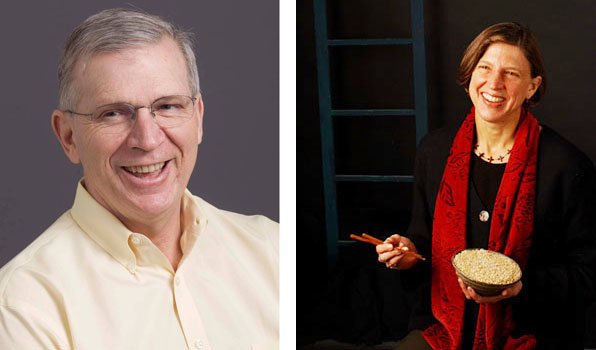How do we feed a growing population and engineer crops that are resilient to climate change? How do we increase crop yields and fight crop diseases and pests while preserving our soils and water sources? The rapid advance of gene editing and other technologies has provided a new tool kit to address these questions and more, and they have already made an impact at a global scale, just at the moment when global-scale solutions are needed most. Brian Staskawicz (UC Berkeley) and Pam Ronald (UC Davis) discuss the latest advances in using genome editing and other genetic technologies to promote sustainable agriculture at scale, both promises and potential pitfalls, and how we move from lab to field safely and equitably.
You can view this talk live below or on UC Berkeley's YouTube page here. It is also being live streamed on the Rausser College Facebook page here. We will be taking live questions on September 11 via Facebook and YouTube in the comments section.
Pamela Ronald, (1990 Ph.D., Molecular and Physiological Plant Biology, UC Berkeley) Distinguished Professor in the Department of Plant Pathology and the Genome Center, and founding director of the Institute for Food and Agricultural Literacy at UC Davis
Brian Staskawicz, Maxine J. Elliot Professor of Plant & Microbial Biology at UC Berkeley and Scientific Director, Sustainable Agriculture at the Innovative Genomics Institute
David Ackerly, David Ackerly, Dean of the Rausser College of Natural Resources and Professor of Integrative Biology and Environmental Science, Policy, and Management at UC Berkeley


